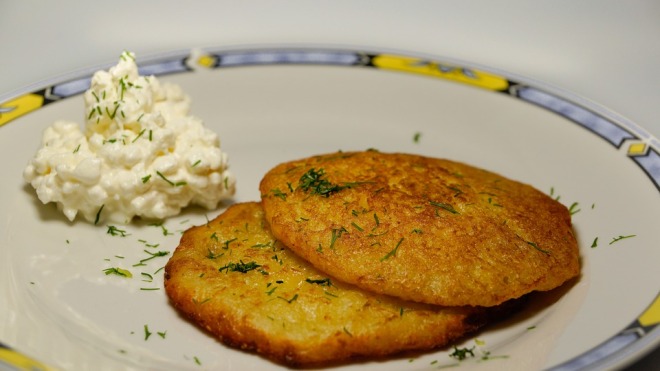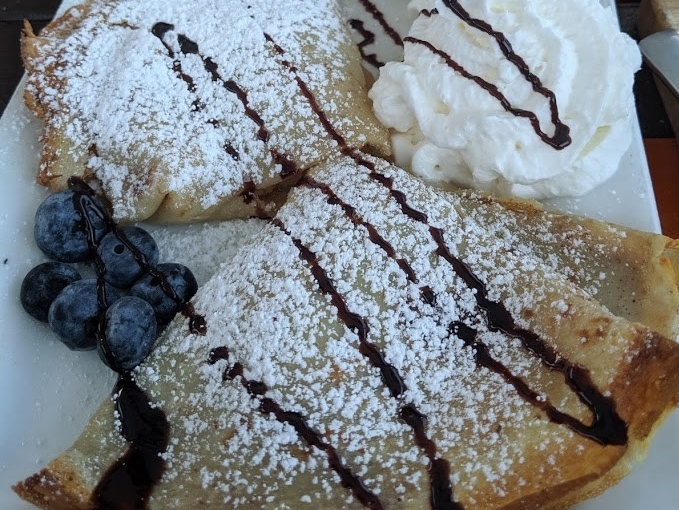The sun is shining, the birds are chirping, and the grilled kielbasa is calling…time for a Polish barbeque or picnic.
Probably every Pole you ask will have their own idea of what makes the best Polish barbeque, but here are my recommendations.
Mizeria (Polish Cucumber Salad)

The perfect appetizer for a warm day outside, mizeria, or Polish cucumber salad, will refresh your taste buds.
It consists of thinly-sliced cucumbers topped with sour cream, lemon juice, parsley, and/or other tasty condiments.
Potato Pancakes

It’s hard to get more Polish than potato pancakes. They’re made of grated or ground potatoes that are fried and bound by egg or applesauce. They’ll make for a great side dish, next to your grilled kielbasa.
Kielbasa

Now to the meat of the matter—the grilled Polish sausage, or kielbasa. Of course, it’s even better with some sauerkraut or onions on the side.
Naleśniki (Blintzes)

This tasty dessert will leave you drooling for more. Naleśniki are essentially pancakes with fruit or cheese filling.
Popular fruit fillings include apple, peach, and strawberries. Oftentimes sugar is sprinkled on the top, and some people even add chocolate frosting.
Pierogi

Most people know of meat-, mushroom-, or cheese-filled pierogi, but a great alternative (or addition!) are fruit-filled pierogi. They can be filled with cherries, blueberries, plums and more!
A perfectly sweet snack for your summer barbeque.
Kompot

Onto beverages. Try kompot, or homemade Polish fruit juice. I’ve found that nothing satisfies my thirst better after running around playing picnic games in the heat.
Kompot is made by boiling fruits (apples, raspberries, blueberries, etc.) in water so they can release their juice. You then add a few teaspoons of sugar, let it cool, and enjoy! There’s nothing quite like it.
Polish Beer

Lastly, no Polish barbeque is complete without Polish BEER! Everyone has their favorites, but my top three recommendations are Perła, Żubr, and Okocim.
These beers are usually available at Polish delis or at grocery stores that specialize in ethnic foods.
Those are my two cents on what to have at a Polish summer barbeque. What are some of your ideas? Tell me in the comments!










